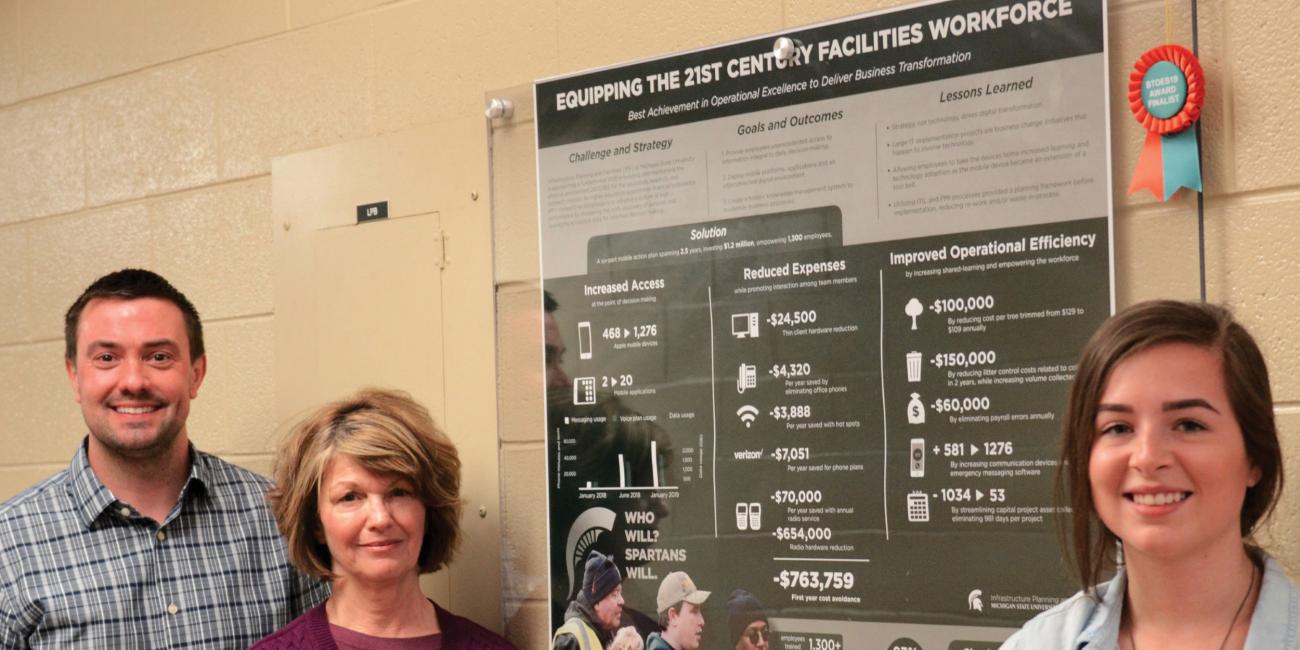Mobile device implementation project receives recognition

April 10, 2019
IPF’s Mobile Device Implementation Project recently received recognition at the 2019 Business Transformation and Operational Excellence Summit (BTOES) in Orlando, Florida. The annual event brings together the best organizations from across key business sectors to engage, network, benchmark and discuss key challenges and future trends within operational excellence.
MSU was the only university in the running for the Best Achievement in Operational Excellence to Deliver Business Transformation Award. Among the 87 global institutional candidates, which included IBM, MetLife, HP and MasterCard, IPF’s entry for the award category did not place, but was shortlisted amongst the industry’s best; an amazing accomplishment considering the impressive pool of finalists.
IPF’s submission for the award included a poster, designed by Campus Services director, Adam Lawver, Communications student, Lexi Kienitz and Recycling professional aide, Nancy Aitcheson. It featured stats on the mobile implementation project along with information about our team and how they are utilizing the new technology. So far, the project has spurred over 80 business process changes, and has resulted in a $763,000 cost avoidance within the first year of implementation alone. IPF placed third among the over 100 companies that submitted a poster, and received a free pass to next year’s summit.
“The fact that MSU was the only university recognized shows that we are on the right track,” said Lawver. “IPF’s core value of innovation requires us to take risks to increase customer value; the mobile action plan has created a new way of providing our customers with service excellence. The six-part action plan spanning 2.5 years is 80% complete and the results are transforming how IPF manages work, communicates with the customer and engages employees.”
IPF’s approach to technology implementation sets it apart from other higher education facilities and private industry organizations. “We not only deployed mobile devices to all segments of our workforce; we allowed employees to take the devices home and use them for personal use,” said Lawver. “By allowing the devices to be used this way, we greatly increased the technology adoption by the workforce.”
Other institutions have taken note of IPF’s winning formula. IPF staff have presented to over 20 universities since 2016, when the mobile device pilot was launched in Landscape Services. IPF is also scheduled to present at the International Society of College and University Planning Conference this summer.
“The next steps include the alignment of our software and data systems to better integrate with the mobile devices, and the development of a feedback process to receive new ideas from our IPF workforce about how we could improve the use of mobile devices, applications or other information,” said Lawver. “Got a suggestion for a new application that could make your job easier and provide better customer experiences? Let us know!”
